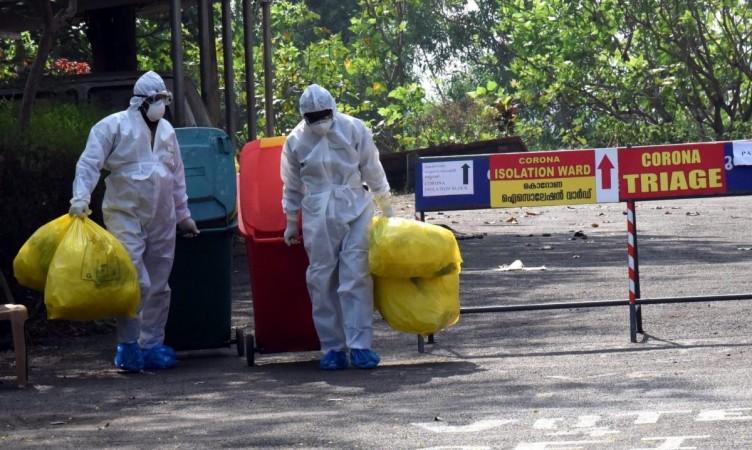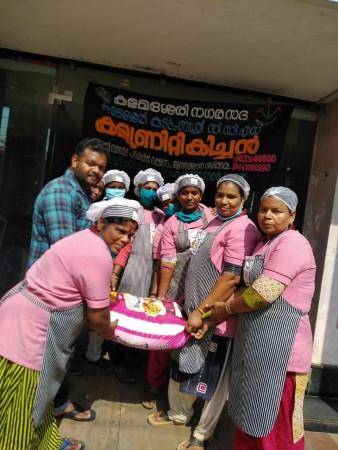On January 30, India reported its first positive case of COVID-19 from the state of Kerala. Within a span of two months, Kerala rapidly emerged as the novel coronavirus hotspot in the country, along with Maharashtra. The two states remained at the top of the table for the most number of patients all through March and it seemed like there was no coming back for them once they breached the 300-mark.
But, as days progressed and COVID-19 rattled the rest of the country, Kerala silently fought the fatal virus and managed a huge turnaround. While Maharashtra's COVID-19 case count went past 2000, Kerala's did not even cross 400. Meanwhile, other states such as Tamil Nadu, Rajasthan, Telangana, Uttar Pradesh, and even Delhi exceeded Kerala by a huge margin.

Kerala did not only manage to flatten the COVID-19 curve but also diligently worked towards curing the infected. As of now, there are 373 positive cases in the state, out of which only 178 are active while 198 have recovered. Besides, Kerala's mortality rate is just a little above 0.5 percent with 2 deaths.
Now, the results of Kerala's meticulous efforts are there for everybody to see but what is not known to many is that how exactly did Kerala manage to almost eliminate the China-originated virus.
Well, Kerala's success can largely be attributed to three measures that we are going to discuss one by one.
Large-scale testing coupled with rigorous contact-tracing
Kerala, from the very beginning, ensured that more and more people are tested for the novel coronavirus and this mainly caused two things to happen. Firstly, it led to the surge of COVID-19 patients in the state, which everybody saw during the initial days of the outbreak. And secondly, it enabled the health authorities to identify all those who needed to be put in isolation in order to prevent others from contracting the disease. Till now, Kerala has subjected more than 14,000 people to the COVID-19 test.
The second part of the first step was to trace each and every person who may have come in contact with either a confirmed or a suspected patient of COVID-19. Also, Kerala did a spatial mapping of all the patients, laying out their detailed travel history along with the specific routes they took in the state and even the vehicles they traveled in. It also listed out the names of all the people a patient came in contact with before going into quarantine. The authorities then circulated these details amongst the public so that they know what to do to avoid getting exposed to the virus. As a result, a total of 1,16,941 people were kept under observation.
Establishing stringent quarantine protocols and ensuring people stick to it
After it identified all those who were the likely carriers of the novel coronavirus, Kerala put them under quarantine for a minimum period of 14 days. Having dealt with several virus outbreaks in the past, the state authorities were experienced enough to anticipate that many would try to break the isolation protocols and were well prepared to deal with such a situation.

Kerala took the help of the community medicine team of Trivandrum Medical College and prepared a questionnaire for those in isolation which helped it in assessing who is more likely to not follow the rules. This way, they were able to keep a tight watch on potential offenders. Besides, with cooperation from local volunteers, the authorities ensured the availability and delivery of all the essential items to prevent people from stepping out of their houses.
To be doubly sure, an Asha worker was appointed to keep an eye on those under home quarantine. They would inform the police if someone did not comply with the protocols.
Setting up community kitchens across the state
The third measure that Kerala took was that it set up as many as 1,225 community kitchens across 14 districts of the state. The aim was to prepare fresh and properly cooked meals to migrants workers and the homeless, in particular.

Run by women volunteers, the kitchens adhered to the proper hygiene norms in regards to cooking and distributed almost 3 lakh packets of food per day. This step proved to be extremely effective during the lockdown as it prevented a number of problems for Kerala that a lot of other states faced.
With an extension of the nationwide lockdown on the cards, the rest of the states are looking to take a cue from Kerala in the fight against the novel coronavirus. The number of COVID-19 cases in the country has now gone past the 10,000-mark.

















